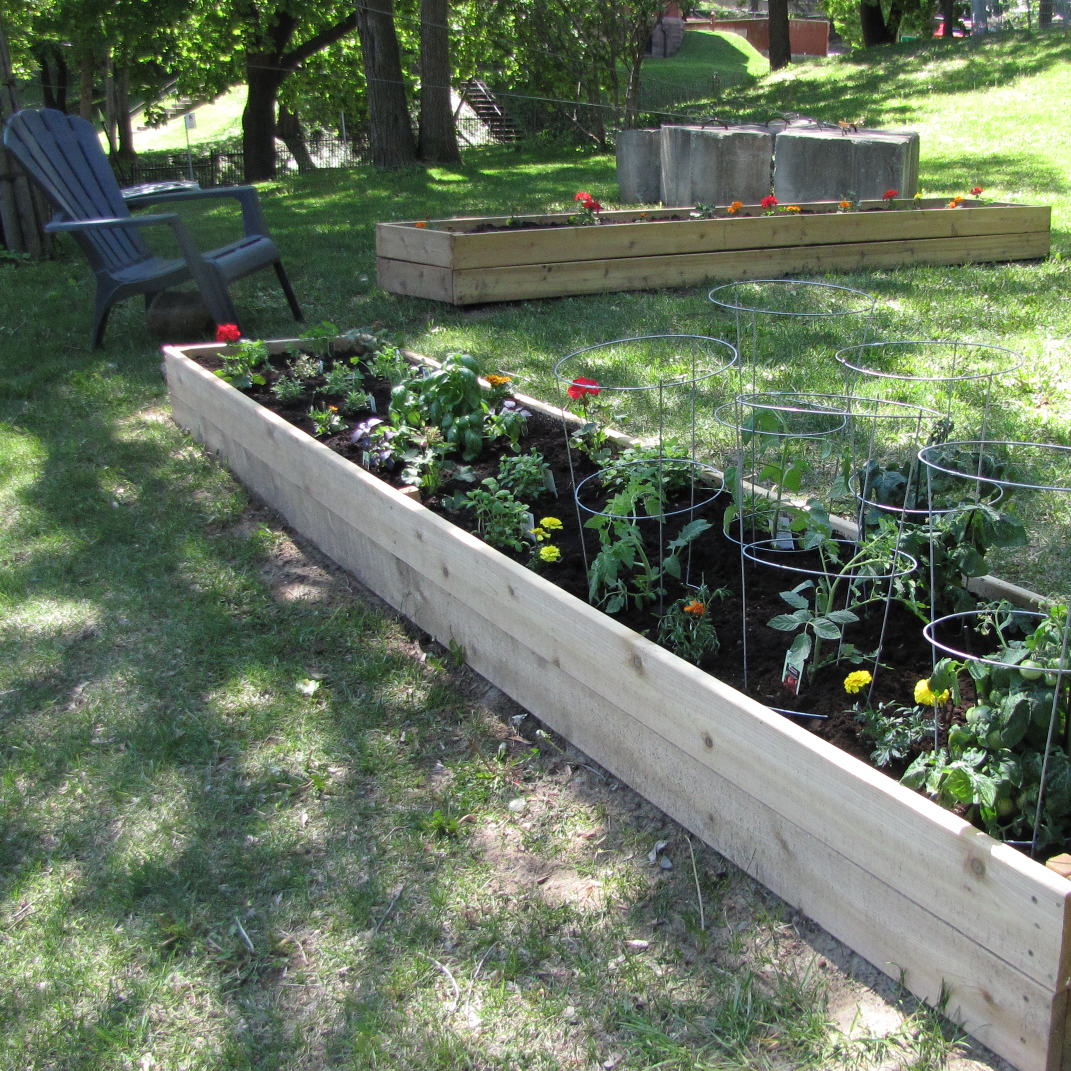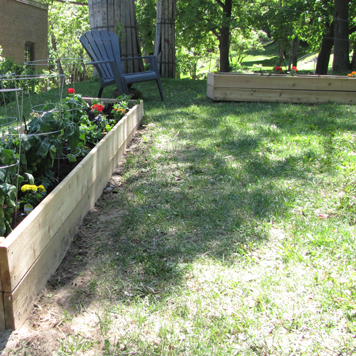In the spring of 2015, McGill’s outdoor learning space was created to explore new and different ways of promoting sustainable devolvement and ecological literacy. Eco-literacy can be defined as the understanding of the relationships between natural systems that make human life on our planet possible. Under the direction of Dr. Mindy Carter, this initiative began with the construction of a community garden located between Coach House and Duggan House (and between the streets of Peel and McTavish). Since inauguration, many faculty members, staff, and students have used the garden/outdoor learning space for teaching, research, and enjoyment purposes. In promoting sustainable development and eco-literacy within the context of the outdoor learning and the community garden, our interdisciplinary research interests include:
- Indigenous education;
- (Eco) arts education;
- Pre-service teacher training;
- Environmental education;
- Outdoor and experiential education;
- Service learning;
- Science education;
- Environmental psychology;
- Education for social justice;
- Food sourcing and food security;
- Community partnerships;
- Nature based learning; and
- Social capital.
As of December 2015, a composter had been installed, and the community garden yielded a substantial fall harvest. Moving into 2016, we plan to expand and grow this space (physically and digitally) to benefit McGill, local schools, and the surrounding communities. From a pedagogical/educational standpoint, this initiative will provide a space for faculty, staff, students, local/pre-service teachers, to become more familiar and confident with the processes of using the outdoors, school grounds, and local neighborhoods as research and learning locations. As many curricular shifts call for interrelated, nature based content, McGill’s outdoor learning/community garden provides a site that can produce interesting inferences for research, teaching, and learning.
In sum, through the ongoing development and engagement with the outdoor learning space and community garden, we aim to promote an eco-literate society. Connecting teachers and learners with the nature is crucial for developing their capacity for environmental stewardship, which is needed in future generations to address issues like climate change, loss of biodiversity, and many other eco-consequences. By co-cultivating ideas with students, teachers, and community members about the intersections of nature, culture, and education, we aim to promote their roles in developing a more sustainable means of living on this planet. It is through these means that environmental issues will be made personal, contextual, and more likely to translate shifts in thinking into individual and collective action.
 Involved: mindy.carter [at] mcgill.ca (Dr. Mindy Carter) (PI); Mitchell McLarnon; Michelle Harazny, Dr. Alain Breleux; Pat Jackson; Dr. Dawn Wiseman; Dr. Naomi Nichols; Dr. Bronwen Low; Dr. Claudia Mitchell; Dr. Elizabeth Wood; Dr. Martha Kobiela; Christopher Nixon; Alexandra Taylor.
Involved: mindy.carter [at] mcgill.ca (Dr. Mindy Carter) (PI); Mitchell McLarnon; Michelle Harazny, Dr. Alain Breleux; Pat Jackson; Dr. Dawn Wiseman; Dr. Naomi Nichols; Dr. Bronwen Low; Dr. Claudia Mitchell; Dr. Elizabeth Wood; Dr. Martha Kobiela; Christopher Nixon; Alexandra Taylor.
Contact:
Mindy Carter, PhD
514-398-4527 Ext. 094457
Department of Integrated Studies in Education
3700 McTavish, Room 310
McGill University

